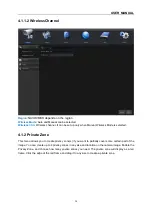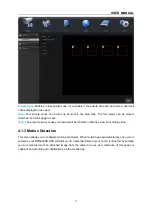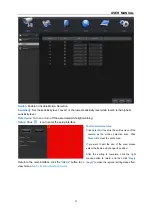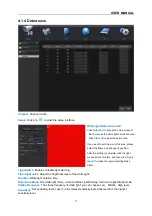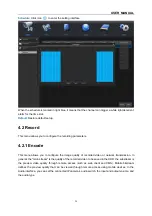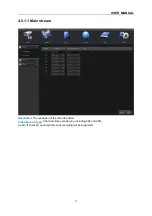
USER MANUAL
10
If you connect to a router allows to use
DHCP
, please check the
DHCP
box. The router will assign
automatically all the network parameters for your WIRELESS NVR. Unless the network is manually
addressed below parameters
:
IP Address
: The IP address identifies the WIRELESS NVR in the network. It consists of four groups of
numbers between 0 to 255, separated by periods. For example, “192.168.001.100”.
Subnet Mask
: Subnet mask is a network parameter which defines a range of IP addresses that can be
used in a network. If IP address is like a street where you live, then subnet mask is like a neighborhood.
The subnet address also consists of four groups of numbers, separated by periods. For example,
“255.255.000.000”.
Gateway
: This address allows the WIRELESS NVR to access the Internet. The format of the
Gateway
address is the same as the
IP Address
. For example, “192.168.001.001”.
DNS1/DNS2
: DNS1 is the primary DNS server and DNS2 is a backup DNS server. Usually it should be
enough just to enter the DNS1 server address.
Port
Web Port:
This is the port that you will use to log in remotely to the WIRELESS NVR (e.g. using
the Web Client). If the default port 80 is already taken by other applications, please change it. The
ONVIF port is synchronized with the web port. When the web port is changed, the onvif port will be also
changed accordingly.
Client Port:
This is the port that the WIRELESS NVR will use to send information (e.g.
using the mobile app). If the default port 9000 is already taken by other applications, please
change it.
RTSP Port:
This is the port that the WIRELESS NVR will be allowed to transmit real-time
streaming to other device (e.g. using a streaming Media player.)
.
Https Port:
The Https port is the web browsing port, which is mainly used for HTTPS services. It is
another HTTP that provides encryption and transmission through a secure port.
Summary of Contents for 57959
Page 99: ...USER MANUAL 94 ...

























